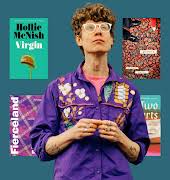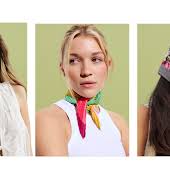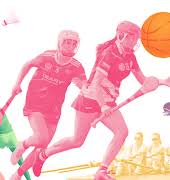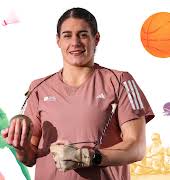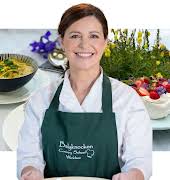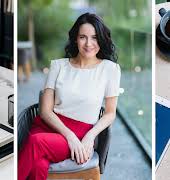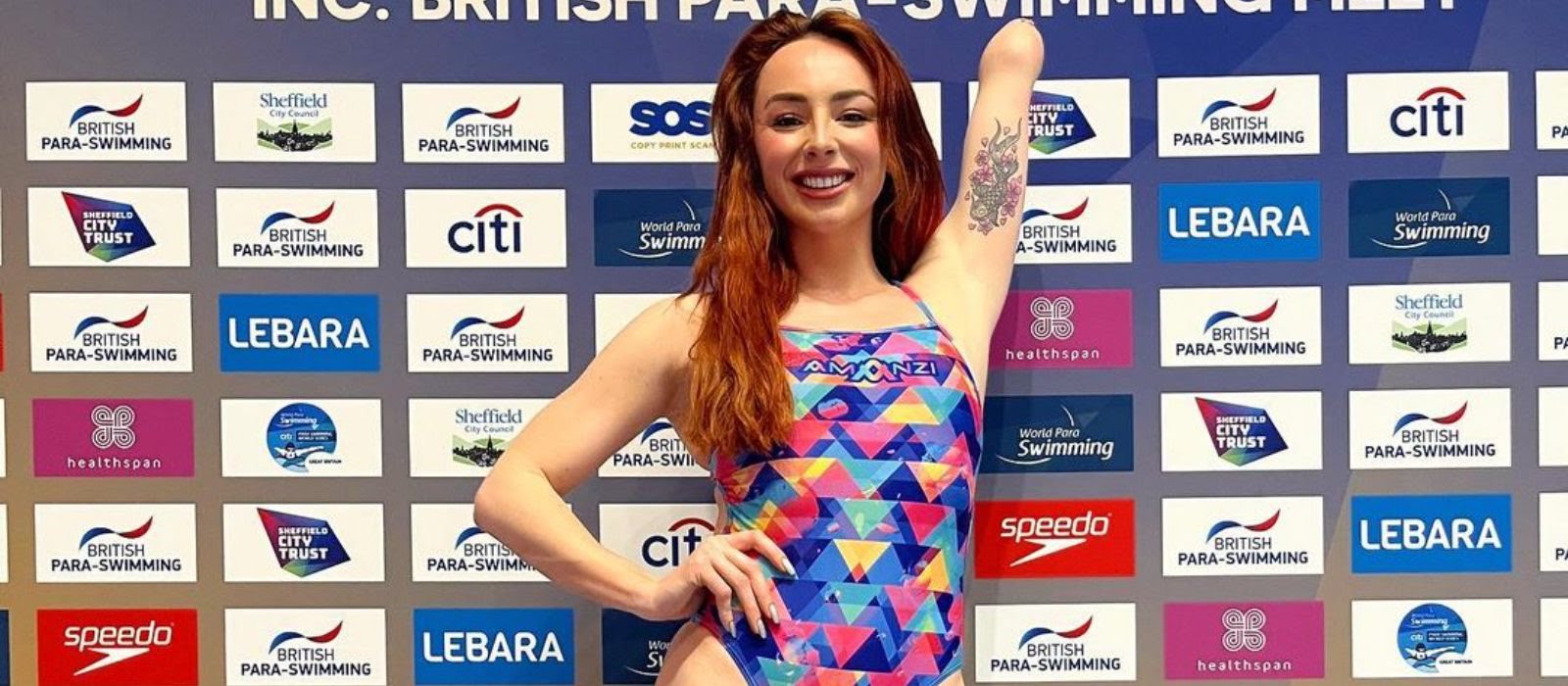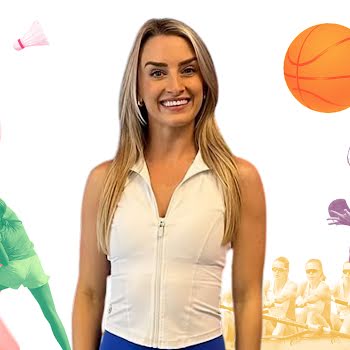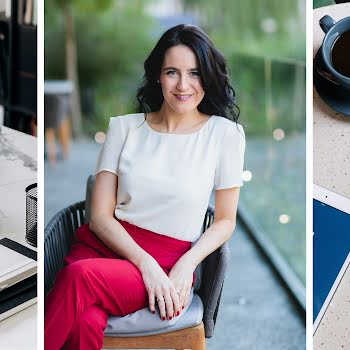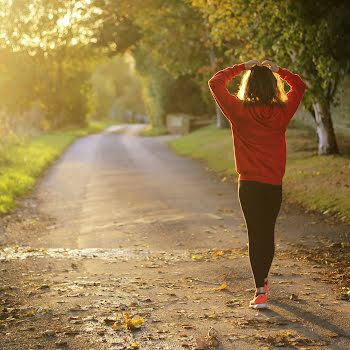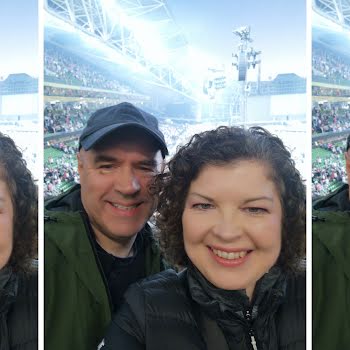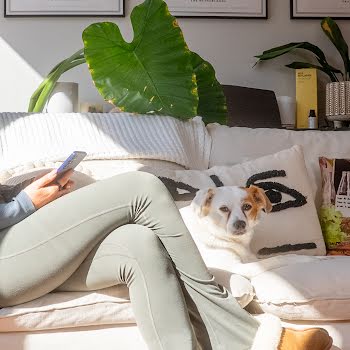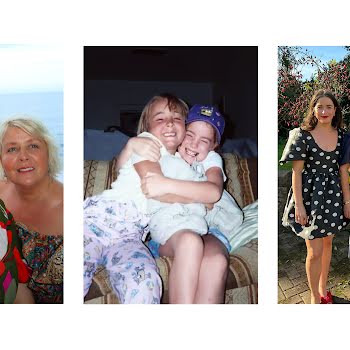@keane_ellen
Paralympian Ellen Keane on retirement, what comes next, and sport as a second home
In this instalment of our Women in Sport series, Paralympic swimmer Ellen Keane tells her sporting story so far, from her earlier memories to finishing with a flourish at Paris 2024.
An athlete who needs little introduction, Ellen Keane became Ireland’s youngest ever athlete when she swam in the 2008 Beijing Paralympic Games, and has remained at the top of her game ever since, winning gold at the Tokyo 2020 Paralympic Games.
Though it’s been a career filled with highlights and record breaking achievements, Paris 2024 will be her swan song, stepping back to pursue a career in media and continue to stand tall as a disability advocate.
A role model for many and a hugely inspiring sportswoman, Ellen talks candidly about feeling underrepresented growing up, finding power in her sense of self, and learning to understand herself more after being diagnosed with ADHD.

What is your earliest sporting memory?
You would think that my earliest sporting memory is swimming, but it’s actually from a running race during a sports day in primary school! I came second or third, and I remember winning a medal and being very happy with myself.
How did you become involved in competitive swimming?
I was really young when it happened, which seems to be a theme with swimming. There’s this charity called Reach, which is for kids with upper limb differences and they had a monthly magazine that would come out. They had this article about a Paralympic swimmer whose mom was the manager of the Irish Paralympic swim team, and she had an arm just like mine. My dad managed to get in contact with her and found out that there was a disability competition in Northern Ireland that was at a grassroots level of kids to come and try things out and have fun. When I was seven or eight, I went along to that and I ended up having a lot of fun and figured out that I loved racing and the control of it all, and from there I joined a local swim club and have been swimming ever since!
That’s why I take my responsibility as a role model for kids in terms of being an athlete so seriously. Visibility means that kids get to see it, so for me, it’s all about taking every opportunity to put your story out there, you never know who you’re going to inspire.
What message would you like to share with young women and girls interested in pursuing a career as an athlete?
I think patience is the key. To really excel in sport, hard work will outwin talent when talent doesn’t work hard. It’s all about doing all the little things you don’t want to do, all the little warmups and rehabs and prehabs — all the tiny little things that you don’t think are making any difference are what will set you apart in the long run. Do all the little things well, and the bigger things will be easier.
Your sporting career has had many highlights, but what is your proudest moment so far?
I think the biggest moment would have been winning the gold medal in Tokyo, but I think I was so proud in 2018 when we brought our European Championships to Dublin. I got to compete in my home pool, I ended up winning the gold medal, I got to hear the national anthem surrounded by all my friends and family. It was so special, and one of my main sponsors was the head sponsor of the event, and they put such work into promoting the event. They used my image for everything, and while there was some added pressure, I really thrived off it.
Who is the female athlete you admire most?
When I was a kid, women in sport wouldn’t have been a thing. I didn’t have many female sporting role models, especially because I wasn’t interested in athletics. It’s only as I’ve gotten older that I find my inspiration through the athletes around me. Even seeing some of the Irish swimmers at the moment is so motivating.
You have Ellen Walshe and Mona McSharry who are Olympians who competed in Tokyo, they’re breaking records and showing everyone who they are and what they’re made of. Also, getting to see my teammate Nicole Turner win silver in Tokyo was so incredible. I think I was happier for her than I was for my own win, I was hanging off the balcony cheering!
There’s Roisin Ni Riain, who was 16 in Tokyo and she’s breaking world records and she’s going to go on and compete in Paris and she’s got so much potential to make the podium. It’s so exciting to be surrounded by these incredible women who are just starting out, and that’s why I stayed. I could have retired after Tokyo but I wanted to stay because I wanted to be in that moment, to be able to see all these women — who are younger than me — step into the peak of their athletic careers.
I don’t think there’s been a more unreal time to be an Irish woman, we’re killing it!
In your experience, do you think there is still a stigma around women in sport?
Yes and no. I guess there’s always going to be that bias that exists within all of us that men’s sport is more interesting and entertaining than women’s. But that’s only because women haven’t been given the opportunity. I’m not a football fan, but I love watching the women’s national squad because I find them so entertaining. What Sky has done to promote them, and showing everyone who they are, has made people pay attention.
That’s where the power of sponsors comes in. They put money behind the advertising, and that’s how we become aware of it. There’s so much money in male sports, so we see a lot more men on our televisions. I’m hoping in the future we’ll see more and more women on television, and we’re making so much progress. I also think coaches are only getting the information and the resources now to manage things like periods in sport, so it’s really cool to see the potential that women’s sports have. I don’t think we’ve even reached the peak of what’s possible, and that’s really exciting.
I know Paris 2024 will be your swan song, and you’ve also got your book out and hosting The D Word podcast — is this the direction you’ll be moving towards?
The opportunities that I’ve been given through swimming have made it possible for me to be in the media environment a lot more. I remember the first time that I was in a radio studio, I just felt instantly so at home. I’m going to try to pursue that side of things, but I’ve also got that underlying sense of responsibility. I was so insecure as a kid because I couldn’t see myself in the media, so I would love to go into other forms of media so that my body and my image and my disability is more out there.
I want it to become ‘there’s Ellen doing her job’ rather than ‘there’s a disabled woman on TV.’
I think I’ve gotten to the point where I’m there, but I think it still feels very new for some people to see a disabled person in the media. I want to help to fill that space and take on that challenge.
It’s a really scary time for me, because swimming is all I’ve ever known. When I did Dancing with the Stars, it was the first time in a long time that I had tried something new that I really cared about. I came face to face with being a learner again with a disability, and I didn’t realise how challenging I would find that. I have all this confidence in the pool, but doing these different things forced me to think outside the box again and I’m so excited to get the opportunity to try new things after I retire.
I hate feeling comfortable, I hate the feeling of standing still, of not growing. So transitioning out of sport and into this new field is scary, but it’s so exciting.
You’ve got the World Championships in August and Paris 2024 to train for, what is your main goal ahead of your retirement?
I’ve found this season the most challenging, and I think it’s because I took a step back from training and competing as much when I came back from Tokyo so that I could do Dancing with the Stars, but also because I needed that break from high performance sport. When I stepped back in, I was going so well but once I started competing more, I had to learn how to get back into things and learn to enjoy it again. When it comes to World Championships, I’m just so excited to have a race plan, to execute the race plan, and hope that because of what I’ve done in the past, maybe win a medal.
On a personal level, it’s going to be such a big, incredibly special moment. I know that the world goes on without you, but I just want to have one more go at it and then I’ll happily step back.
The sport has grown so much in the past three years that there’s no opportunity to stand still. I’m so excited to give it a go and maybe make the podium. It will be my last World Championships, so there’ll be a little bit of sadness but my main focus has been Paris. A really important thing for me is to not retire on a random Tuesday, and that being it. My family have sacrificed so much throughout my sporting career, and I’ve had so much support from Irish people, from people from my home town in Clontarf, that I think it would be nice for them to be able to watch my last ever race.
What is your go-to pre-competition meal?
Our heats and our finals are on the same day, so my competitions last the whole day. The day before it I would try really hard to eat loads of carbs, but I also try to eat really basic foods, because I get a really sensitive stomach with the nerves and adrenaline, and caffeine and gels and shakes, and that can be a lot on your stomach too. White rice, plain pasta, plain chicken — everything is plain.
With swimming, you’re putting on a racing suit that takes maybe 20 minutes to put on, it’s like the tightest Spanx you can imagine, so going to the bathroom is already a pain. I plan the exact times I’m going to eat things so that I can know what times I’ll need to go to the bathroom. The worst things about being a swimmer are probably putting on the racing suit, and then when you finish the race, you have to cool down to get all the waste products out of your body.
What’s on your pre-competition playlist?
Silence makes my brain go into overload! If I’m really relaxed, I’ll listen to more upbeat, energy boosting music. If I’m feeling like I need motivation, I’ll listen to Eminem, because he just says it like it is! Then if I’m too nervous, I’ll listen to something that’s going to calm me, like The Coronas. They’re Irish, familiar, and really comforting to me.


